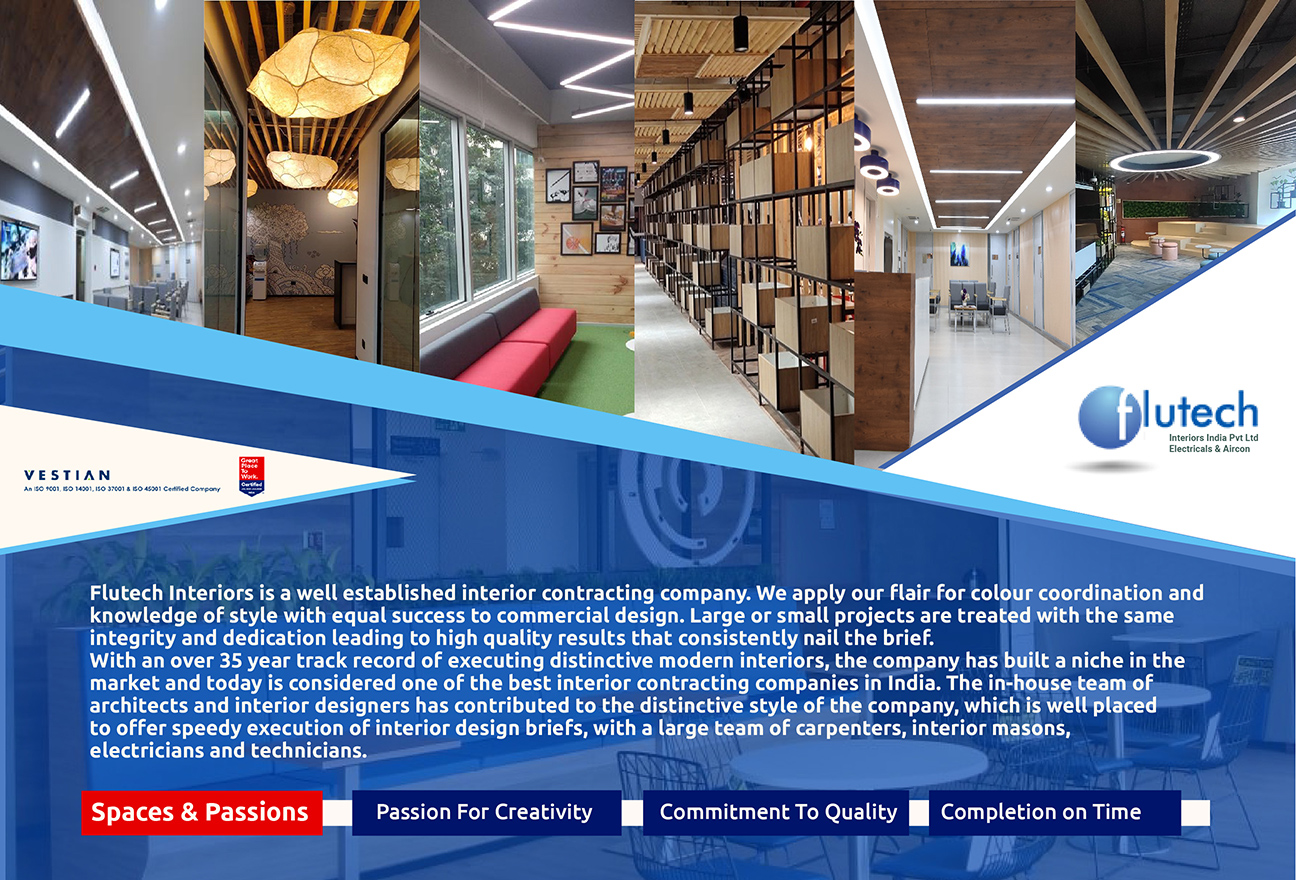Vestian Workplace Services Global CEO Shrini Rao knows exactly why his corporate real estate firm has been so successful so quickly in a market crowded with long-established rivals. In fact, it had been part of his strategy long before Vestian started providing services in 2010 and bore fruit right from the start.
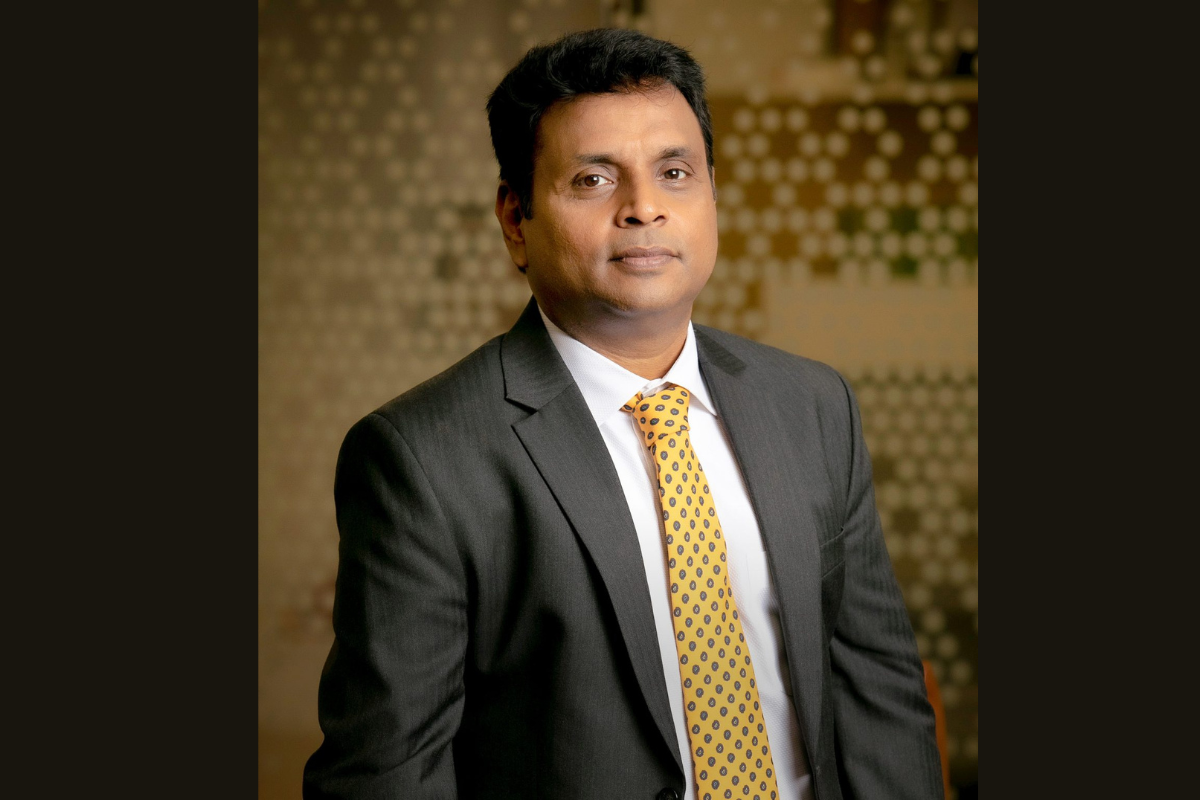
“When I set the company up, I was very clear that my business model was to be an equal opportunity platform, with women in leadership roles,” he tells The CEO Magazine. “And that’s exactly what we’ve done. Fourteen of my 16 direct reports are women, so they are running everything from corporate communications and project management to HR and construction. It’s a very good thing.”
It’s also a very unusual thing. Across the subcontinent’s workforce, women account for only 19 per cent of managers and five per cent of executive chairs. And the world of corporate real estate hasn’t exactly been at the forefront of addressing the imbalance.
“It’s a man’s world,” Shrini declares. “Honestly speaking, with my competitors, nine out of 10 senior positions are held by men. We’re the only one with so many talented women. And you know what – that’s one of the reasons it took us only 10 years to scale up to a level that took them 30!”
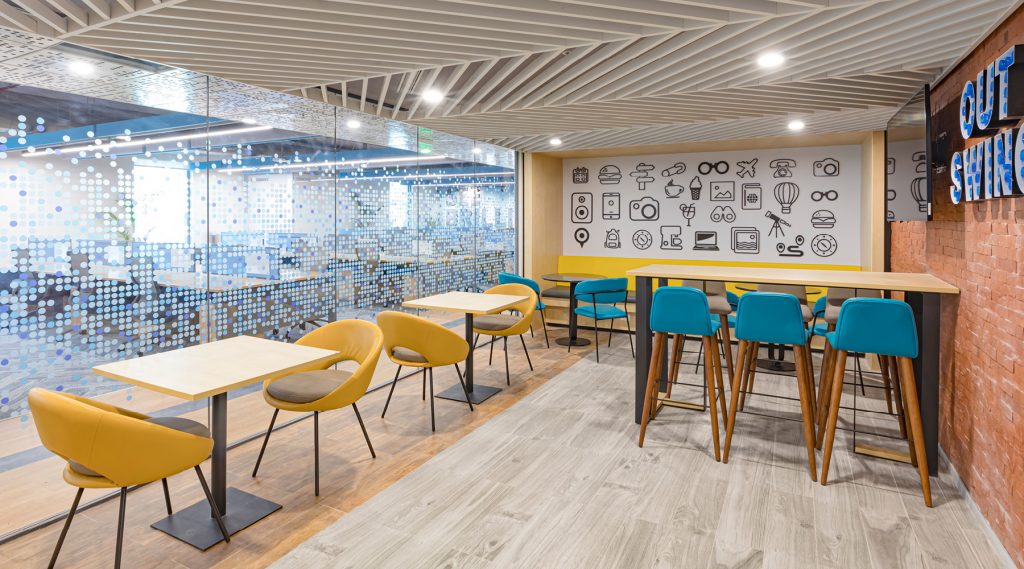
Supporting the occupiers
Vestian is unique in the real estate industry because it only deals with occupiers, not landlords. That way, there’s never a conflict of interest between competing demands. Its services include finding workspaces, conducting feasibility studies, negotiating lease agreements and then overseeing the ongoing management.
It’s also a specialist in designing and building workspaces that are aligned to the business needs of its customers.
With global headquarters in Chicago and APAC HQ in Bangalore, it currently has 10 offices in the US, six in India and three in China. It has earned a reputation for using state-of-the-art technology and local architects to create some of the most eye-catching and imaginative modern spaces for organisations operating in just about every sector.
Shrini founded the company after a spectacular 18 years in real estate and property development, but not everyone was impressed by his early career choices.
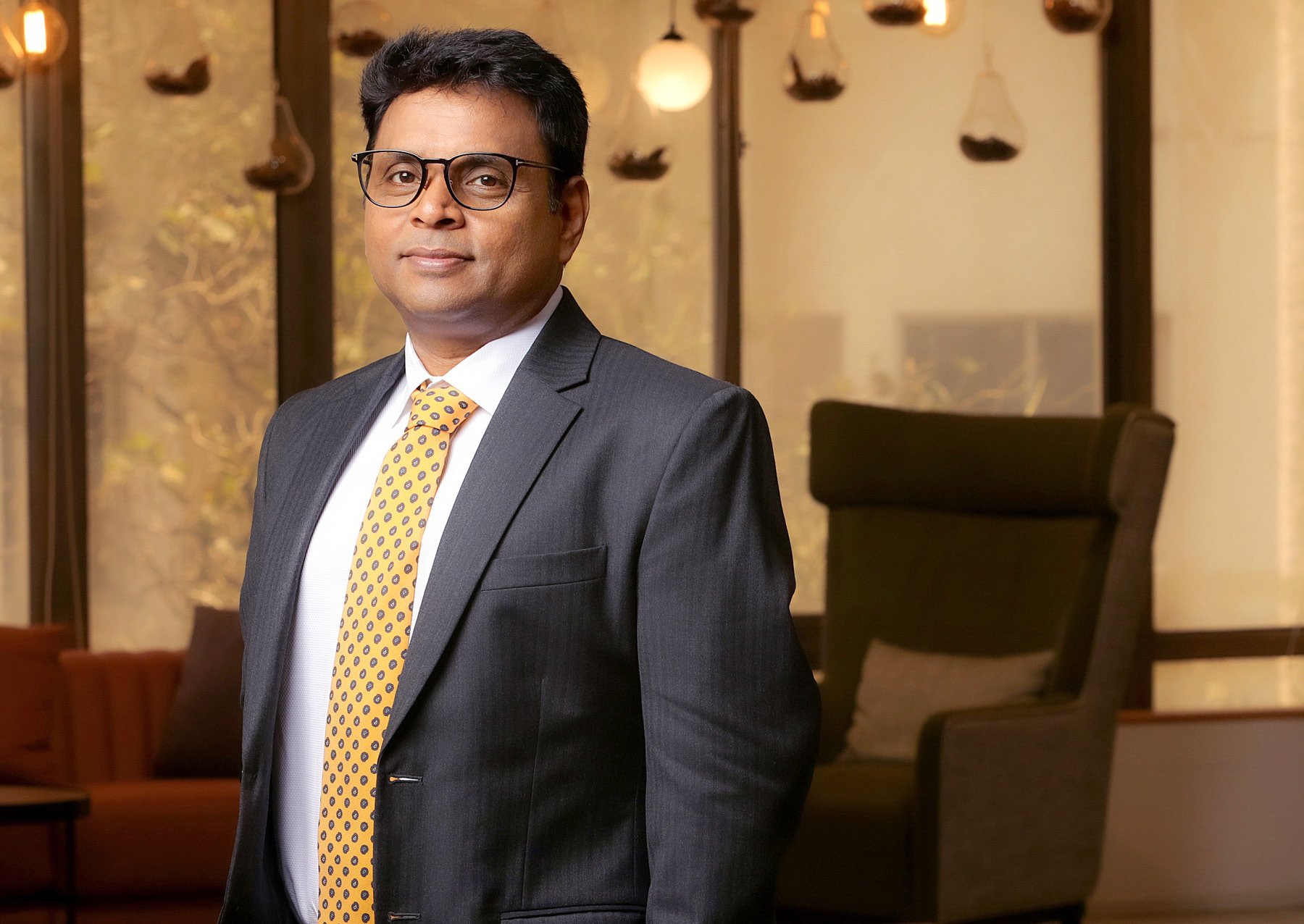
I was the only guy on campus who joined a developer, which speaks volumes about what people thought of the industry!
“I had a civil engineering degree, then got my Executive MBA at Yale and decided to pursue something that I actually liked. The whole campus was joining FMCG companies like Proctor & Gamble or Unilever, but I chose a residential development company in Mumbai called K Raheja.
“When my father heard, he practically had a heart attack because he was like, ‘Which idiot on the planet would give up a multinational like Unilever and join an unknown commodity in India?’ I was the only guy on campus who joined a developer, which speaks volumes about what people thought of the industry.”
A new industry
Four years later, in 1996, Shrini, who is fluent in six languages, became the very first employee of a company called Colliers Jardine, part of the Jardine Matheson Group from Hong Kong.
“I set up the corporate real estate services business for them in India, which is basically brokerage, project management, marketing and facility management. Back then, no-one knew what it meant so most companies just got some procurement guy to manage the buildings.”
Educating major companies about the benefits of the service was a long process, but gradually, more and more started seeing the light and Shrini was able to expand into other parts of Asia and the Middle East.
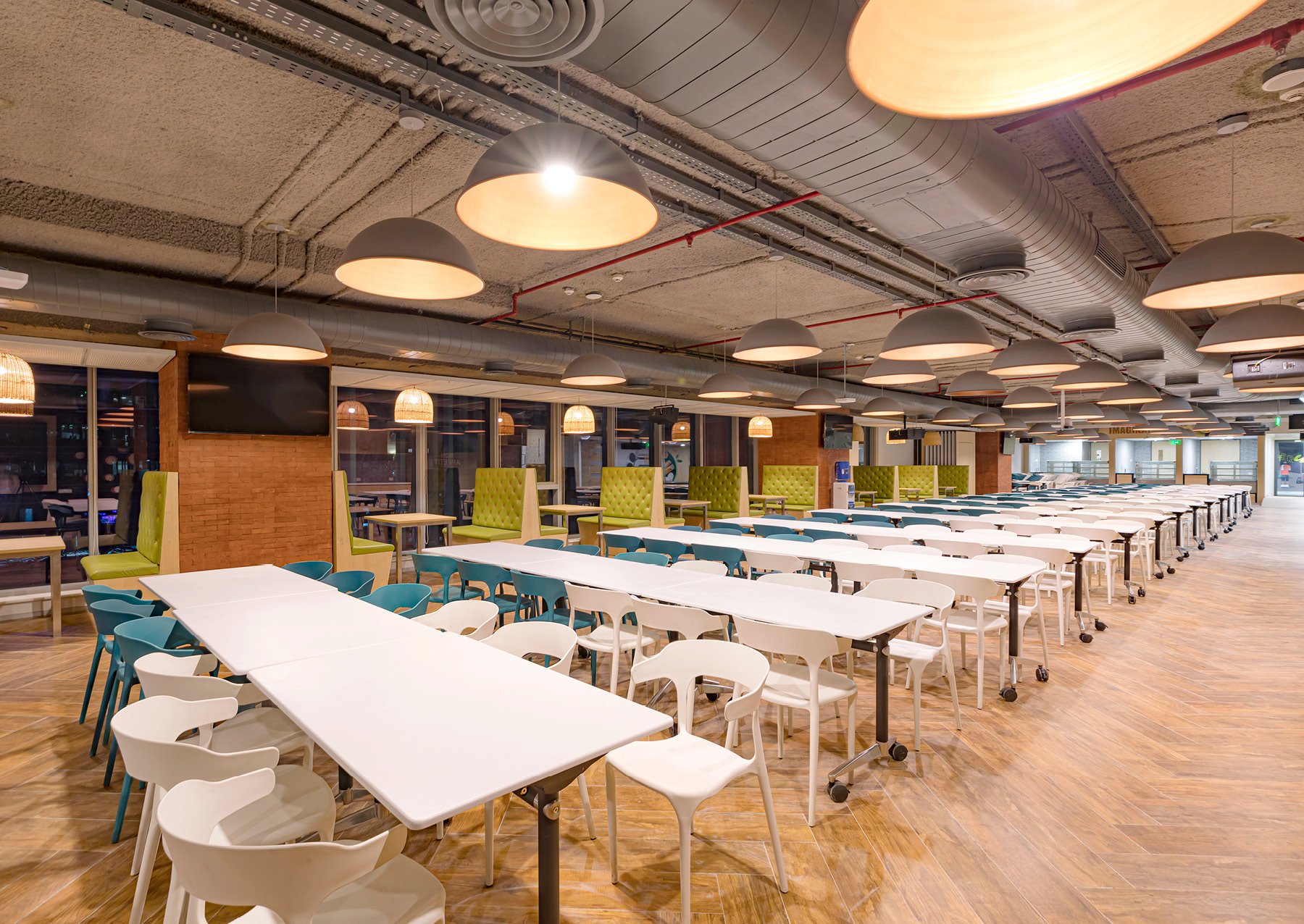
Hot Desking
“Vestian is a flat organisation – all of us sit behind the same type of desk, we don’t have separate cabins. The CEO or CFO, everybody sits on a basic desk and I have what I call a rotating desk – every week I go and sit with somebody new, it’s the luck of the draw. Whether they see it as good luck or bad luck, I don’t know.
“And I take all my calls from that desk so they get to hear me talking to a client or customer or discussing a pitch or whatever. They hear how I handle a situation.”
Next, Shrini started Equis, now Asia–Pacific’s leading commercial real estate firm. When it was acquired by the Australian company UGL, he ran the Asia–Pacific facility management operation from Singapore, responsible for a team of 4,500.
“I eventually came back to India in 2010 because we acquired DTZ and then Cushman & Wakefield. I decided enough was enough – I had to come back home because my family was here.
Vestian was established by Shrini and other former Equis executives with a mission to become a leader and innovator in occupier services. It enjoyed success from the get-go. By 2019, it had drawn up plans to launch operations across Europe the following year, where demand for office space was on the rise.
Abandoning offices
But during the following year, even the best-laid plans ended up in tatters.
“Europe was the first to be hit with COVID-19, but soon it had percolated down to Asia. Suddenly everyone is working from home – and our business depends on people working in offices. Within three months of the first lockdown, Tata Consulting Services was saying, ‘Hey, no-one’s going to have offices anymore because 75 per cent of staff will work from home.’
“It shook the industry because people didn’t know how viable it would be. Then we saw a lot of statistics saying, ‘Oh, productivity is up 90 per cent. Excellent! Work from home is a success.’ But then you started seeing burnout because the workday never ended. People didn’t know when to stop and when to start.”
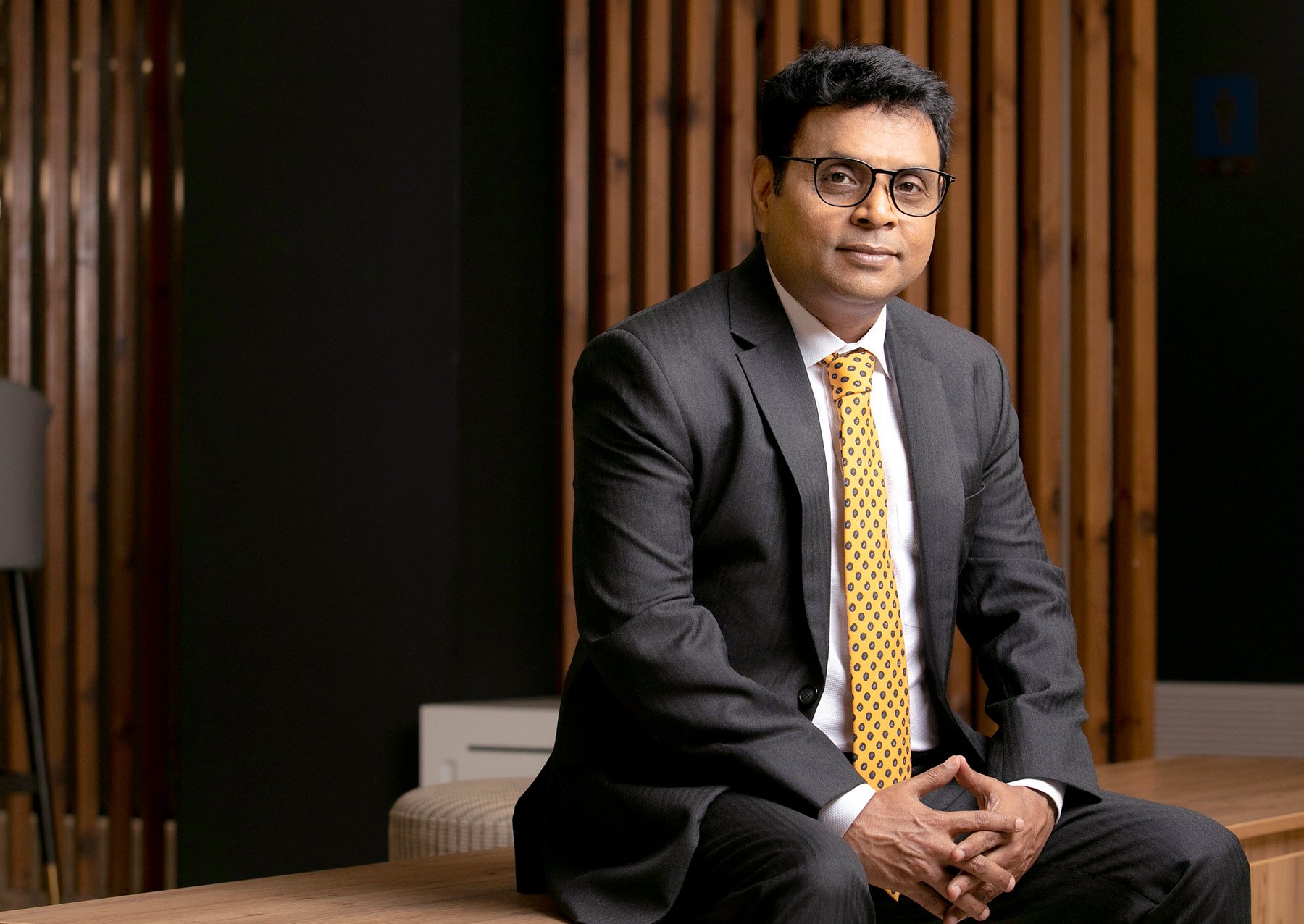
Many just didn’t want to work in offices again.
Even when travel and working restrictions eased, the challenges for Vestian were far from over. As economies began to recover, Shrini noticed a seismic shift in attitudes to work.
“People realised you didn’t need 15 suits; you didn’t need three cars or club memberships. You didn’t need to go to five-star hotels because you spent a year and a half in your shorts and T-shirt at home.
“And you saved a lot of money. Your perspective towards life changed. You enjoyed the small things in life like staying with the family. All of that made getting talent our biggest challenge. Many just didn’t want to work in offices again.”
A double whammy
Two years of no commuting led to another unforeseeable problem.
“People suddenly started asking us for crazy salaries. They were saying, ‘You were paying me US$100 before, and you paid me US$100 when I was at home, but I need US$140 now because my commute costs US$40.’ The attitude was that if I didn’t give in, they didn’t want to work for me anymore.”
Customers, too, had demands, asking for fee reductions because the coronavirus had decimated profits.
“Meanwhile, my people were asking for more because they were called into the office or had to visit a site. It was a double whammy.”

Drone Reports
“Before COVID, our customers used to fly back and forth during the construction phase to see the facility we were constructing with their own eyes. But suddenly, there was no sight to the progress at the facility. We had to ensure that our customers were abreast of the progress in real time and came up with the idea of sending drone reports. We fly drones morning and evening and live stream the footage. Because seeing is believing, right? I mean, I can talk until the cows come home, but if I have a simple drone report, which shows the transformation between morning and evening, it’s a no-brainer.”
Space invaders
The way in which companies adjusted their workplaces to staff working remotely varied wildly between regions.
“Developed markets like the US always worked on space requirements of 160 square feet [15 square metres] per person, whereas in India or China, it’s 80 square feet [7.5 square metres]. So in the US, they’re saying, ‘We have too much real estate, we want to give it up.’
“But in India, people are instead reconfiguring their spaces to accommodate a smaller workforce, which is a great opportunity for a company like Vestian. Even now, I have customers every morning saying, ‘You know what? I want a million square feet [93,000 square metres] because my growth plans for India are the same as they were.’”
Vestian customers occupy some 50 million square feet (4.6 million square metres) of real estate each year, but Shrini estimates the total market as more than 12 times that and still growing.
“It’s a growth story, and it’ll go on growing. We’ll be putting a lot of money into India, but Europe is taking a very different view. They’ve got these three- or four-day-weeks – it’s all up in the air. Whether this whole hybrid model or some working remotely, some being office-based is really productive or not is a big question mark.”
As well as India, Vestian has turned its attention to Bangladesh, Singapore and Hong Kong.
“A two-bed apartment in those places is only 1,300 square feet [120 square metres], so who wants to work from home there? It’s very tight, especially if you have kids.”
Facing up to change
COVID-19 has also revolutionised Shrini’s work schedule and thrown up questions about how to deal with valued customers remotely.
“Before the pandemic, I took around 125–140 international flights a year. I’d jet to Singapore for the day and catch the last plane home. Same with New York. I’d finish my meeting and grab the evening flight back to India.
“I did it because human beings are social animals. Meeting a customer face to face gives them a sense of security, encourages them to make up their mind faster. You’re there to give your personal commitment. You meet, you build a bond and that’s how business was done.”

In Asia, women have to work twice as hard as men to prove their capability.
A Zoom call is quicker, cheaper and more convenient, but for Shrini, it just isn’t the same.
“Selling a major project over a video link is extremely hard, but what’s the alternative? How do we market our credibility to customers who have become very cautious? A corporate real estate manager won’t lose his job if he hires a global corporation or Fortune 500 company, but that’s not us.
“He might not know Vestian, so he’ll worry that he’s going to be fired if we screw up. That’s why opportunities started declining for firms like us. One of the most difficult things for me personally has been to work out how I could sell to a customer.”
Empowering talent
Working out how to adapt to a changed world has baffled most companies, but Vestian has clearly coped better than most, judging by its continued growth and ambitious international expansion plans.
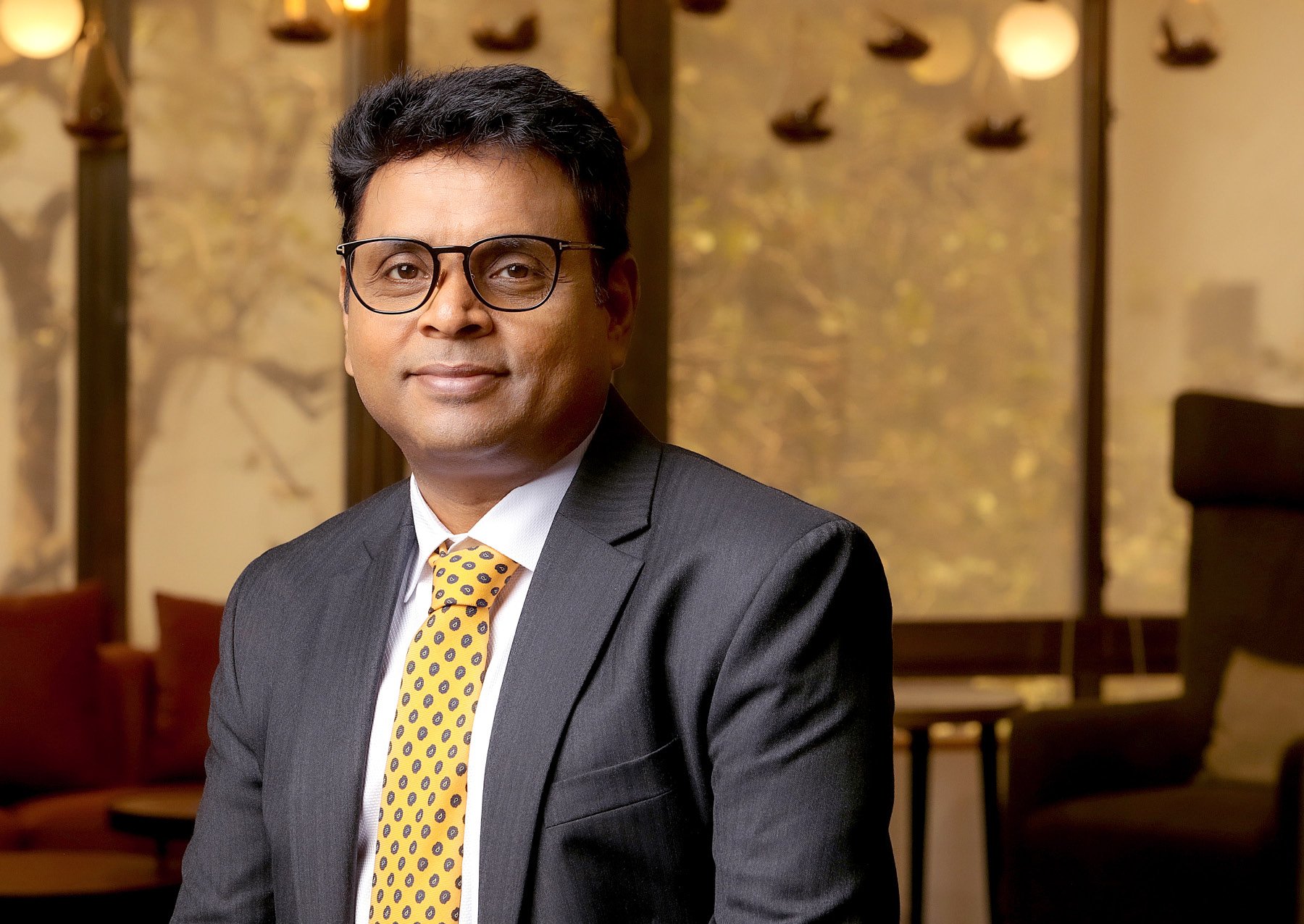
Shared Success
“I’ve been working with the same partners and suppliers for the last 10 years and they’ve grown with us. I started with a revenue of US$500,000 and today we’re a US$100 million company in India alone. If a supplier started out as a US$100,000 company, then maybe today they’re worth US$15 million. It’s the same set of people for all this time. We invest and train our partners to our needs and requirements and improve their business delivery, because in their success lies our success.”
For Shrini, it goes back to one thing: recognising and empowering talent.
“That’s where I think I was blessed as I was born with two sisters and I saw them thrive in their respective fields, and it influenced me a lot in getting the best people around me.
“In Asia, women have to work twice as hard as men to prove their capability. That’s something I’ve witnessed for 25 years. People say, ‘Oh, she can’t possibly do that job’ or ‘she won’t be able to travel’, which is nonsense, but I’ve seen some of the best talent get sidelined because of their gender. Well, that hasn’t happened here and that makes me very proud.”
Sponsored by: Technogreen
Technogreen’s expertise lies in servicing multiple industry segments with customised solutions that provide unique experiences while aiming to create a greener, cooler and healthier environment.
Read More
Proudly supported by:
